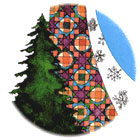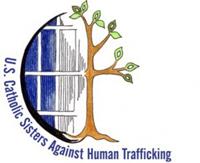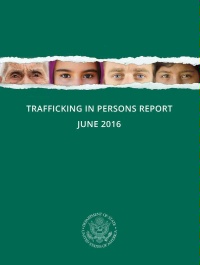|
The Institute of the Sisters of Mercy of the Americas was formed in 1991 when communities in the US, Central and South America, the Philippines, Guam and Caribbean came together.
 As the Sisters moved into the 21st century the cry of the poor was heard anew in the growing reality of human trafficking and its complex networks. Each of the Communities faces this reality with a special concern for the women and children who are trafficked for sexual exploitation and labour. As the Sisters moved into the 21st century the cry of the poor was heard anew in the growing reality of human trafficking and its complex networks. Each of the Communities faces this reality with a special concern for the women and children who are trafficked for sexual exploitation and labour.
The Institute Leadership Team (ILT) appointes personnel to guide and assist the sisters in discernment towards appropriate action in addressing to-day’s needs throughout their Community. Sisters at the local level interpret with compassion, the Institute’s guidelines against the backdrop of the Spiritual and Corporal Works of Mercy for our times.
While there are many long established ministries related to Education, Health Care and Social Services
flourishing, the Institute Justice Team (IJT) also takes initiatives and works in partnership with other groups in addressing the needs of trafficked people, of survivors of trafficking, with a special emphasis on vulnerable children, e. g:
 1.Mercy Investment Services (MIS), a ministry of the Institure, engages corporations in human trafficking prevention through spearheading an Anti-trafficking Programme in the hospitality, tourism and trucking sectors 1.Mercy Investment Services (MIS), a ministry of the Institure, engages corporations in human trafficking prevention through spearheading an Anti-trafficking Programme in the hospitality, tourism and trucking sectors
 2. Mercy Sisters work in partnership with United States Conference of Catholic Bishops and U.S. Sisters against Human Trafficking to raise awareness on human trafficking and on how to identify potential human trafficking victims. 2. Mercy Sisters work in partnership with United States Conference of Catholic Bishops and U.S. Sisters against Human Trafficking to raise awareness on human trafficking and on how to identify potential human trafficking victims.
3. Communities contribute financially to raising awareness of trafficking locally and at national level.
The Institute Justice Team co-sponsored a human trafficking conference, IGNITE:-Sparking Action against Sex Trafficking, held in St Louis on in 2014. Its focus was “to engage, educate and empower a diverse group of supporters and stakeholders in the common cause of combating sex trafficking.” The conference was attended by Mercy sisters from the Institute’s Communities, professionals from law enforcement, medicine, education, faith-based and community groups. Three women, survivors of human trafficking, helped participants understand what it really meant to be a victim. Jeanne C, Justice Advocate from WMW Community, reflected: “I am always amazed when I interact with survivors, amazed by their courage and tenacity to make something whole and good out of the evil they have endured.” Accommodation was in hotels in the locality, that are signatories to the ‘Meeting Planners’ Code of Conduct’ of ECPAT-USA for the protection of Children from Sexual Exploitation.
At Legislative Level the Leadership Justice Team develops Voter Guides at election times that also helps promote the Institute’s Critical Concerns (earth, non-violence, women, anti-racism, and immigration) and the issue of human trafficking is addressed in various sections. Currently the IJT works to advance positive legislation that helps serve human trafficking survivors. The Institute, along with many faith partners, strongly advocated for and prevented the repeal or alteration of the Trafficking Victims Protection Reauthorization Act of 2008. This action was taken due to the influx of unaccompanied migrant children coming to the U.S. from Central America and to the political reaction to repeal the law which was designed to help children fleeing potential human trafficking situations. The ILT sent a letter directly to President Obama on behalf of these vulnerable young people and children and also contributed to the letter sent to the president from the many partners in the Inter-faith community.
The Institute is currently configured as six Geographic Communities namely:
1. Northeast Community
2. Mid-Atlantic Community
3. NyPPaW Community (New York, Pennsylvania and Pacific West Community)
4. South Central Community
5. West Midwest Community
6. CCASA Community (Caribbean, Central America and South America Community)
Working to eradicate human trafficking is a top priority for the Institute’s Geographic Communities. A report on the activities of each Geographic Community follows:
 Trafficking in Persons (TIP) Report 2016 Trafficking in Persons (TIP) Report 2016
The Trafficking in Persons Report, or TIP Report, is an annual report issued by the U.S. State Department's Office to Monitor and Combat Trafficking in Persons. It ranks governments based on US research of their efforts to acknowledge and combat human trafficking.
In the TIP Report, the Department of State places each country onto one of three tiers based on the extent of their governments’ efforts to comply with the “minimum standards for the elimination of trafficking” found in Section 108 of the TVPA.
View the TIP Report 2016 for the United States (Tier 1)
|


 1.
1. 2. Mercy Sisters work in partnership with
2. Mercy Sisters work in partnership with 
